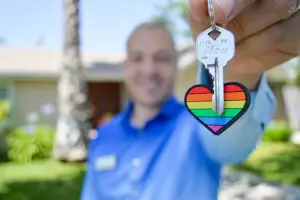Last Updated on June 30, 2022 by Gary Stephen

Property management is the process of overseeing and maintaining a property, whether it is residential, commercial, or industrial. The goal of property management is to protect and enhance the value of the property while also ensuring that it is well-maintained and comfortable for those who live or work there.
There are many different aspects to property management, from marketing and leasing properties to maintaining them and dealing with tenants. If you’re thinking about becoming a property manager or hiring one to manage your own property, there are a few things you should know first. Here are six things you need to know about property management:
1. Tap into the right resources
As a property manager, you’ll need to wear many hats. From keeping on top of maintenance and repairs to marketing vacant units, there’s a lot to do. Wearing so many hats can be difficult, but luckily there are plenty of resources available to help.
The first step is to find the right ones. There are tons of property management resources out there, but not all of them are created equal. Do some research and find the ones that will work best for you and your properties. You can consult a property management knowledge center by clicking on their site and by exploring useful tips and resources. This is also helpful if you are focusing on a particular area like Charlotte, Raleigh-Durham, and surrounding areas in North Carolina. Whichever state you may be working in right now, there will be available property management resources you can utilize.
Some great places to start looking are online forums, industry association websites, and even social media groups dedicated to property management. Once you’ve found a few good sources, bookmark them and check back often for helpful tips and advice.
2. Get organized
Staying organized is key in property management. There are a lot of moving parts, so it’s important to have a system in place to keep track of everything.
One way to do this is to create a master checklist of all the tasks you need to complete each week. This could include things like checking the mail, updating the website, and responding to tenant requests.
Having a master list will help you stay on top of everything and ensure that nothing falls through the cracks. You can also use it to delegate tasks to other members of your team or contractors.
3. Streamline your processes
In property management, there are a lot of repetitive tasks. From processing rental applications to scheduling showings, there’s a lot of ground to cover. To save time and energy, it’s important to streamline your processes as much as possible.
One way to do this is to create templates for commonly used documents, such as lease agreements and rental applications. This will save you from having to start from scratch each time you need one of these documents.
You can also use technology to automate some of the more tedious tasks, such as sending out monthly rent reminders or scheduling maintenance appointments. There are a number of great property management software programs out there that can make your life a lot easier.
4. Keep good records
Good record-keeping is essential in property management. You’ll need to keep track of everything from rental payments to maintenance requests. Having good records will help you stay organized and efficient.
It’s a good idea to create a system for storing your records. This could be something as simple as creating a folder for each property. Within each folder, you can keep all of the relevant documents, such as leases, rental agreements, and invoices.
Staying on top of your records will also help you out if there are ever any disputes or problems down the road. Having everything well-documented will give you peace of mind and make it easier to resolve any issues that may come up.
5. Communicate with your tenants
Good communication is essential in property management. You’ll need to communicate with your tenants on a regular basis, whether it’s to update them on repairs or collect rent.
It’s important to be clear and concise in your communication. Use a professional tone, and make sure that you’re always polite. You should also set up a system for tenants to contact you, such as an email address or phone number. This will help you stay responsive to their needs.
6. Be prepared for the unexpected
In property management, there’s always something that can go wrong. From plumbing problems to tenant disputes, you never know what’s going to come up. That’s why it’s important to be prepared for the unexpected.
One way to do this is to create an emergency fund for each property. This fund can be used to cover unexpected expenses, such as repairs or legal fees.
It’s also a good idea to have a contingency plan in place for things like tenant move-outs or natural disasters. This way, you’ll be able to keep your properties running smoothly, even when the unexpected happens.

Property management is a complex task that requires a lot of knowledge and skills. But if you’re prepared and organized, you can succeed in this challenging field. Just remember to tap into the right resources, stay on top of your records, and communicate with your tenants. With these tips, you’ll be well on your way to becoming a successful property manager.
